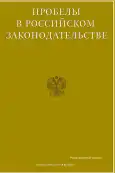Formation of Motivation of Students in Educational Organizations of the Ministry of Internal Affairs of Russia in the Discipline «Physical Training»
- Authors: Kodzokov A.K.1
-
Affiliations:
- Krasnodar University of the Ministry of Internal Affairs of Russia
- Issue: Vol 16, No 4 (2023)
- Pages: 73-77
- Section: Current problems of training and development of internal affairs staff in modern conditions
- URL: https://journal-vniispk.ru/2072-3164/article/view/250358
- EDN: https://elibrary.ru/JGCKJS
- ID: 250358
Cite item
Abstract
This article examines the key aspects of the formation of motivation for physical culture and sports among students of educational organizations of the Ministry of Internal Affairs of Russia. In the educational organizations of the Ministry of Internal Affairs, great importance is attached to the development and strengthening of the health and physical indicators of students. Poor physical fitness directly affects the success of the activities of employees of the internal affairs bodies, their status, merits and the need to treat their representatives with respect. Therefore, in order to achieve an appropriate level of physical perfection, it is necessary to develop the habit of playing sports and maintaining one's condition by systematically receiving loads and performing various sets of exercises. An important component for the constant occupation of the dispute is the right motivation, which is a combination of internal and external factors to achieve the goals.
It was established that one of the key aspects of motivating students in the field of physical training is the choice of the optimal method of classes. The methods used should correspond to the level of students' training, as well as their goals and interests. For example, the use of innovative technologies in the learning process, such as interactive videos, computer games, etc., can increase the motivation of students and interest them in participating in classes. However, in addition to choosing the optimal methodology, proper organization of classes is also necessary.
It is concluded that the probability that it will be possible to solve the problem with the motivation of listeners in any of its manifestations once and for all is extremely small, but this does not mean that it is not necessary to pay attention to it and continue to ignore it. It is necessary to develop an effective methodology to increase motivation and use it on a systematic basis, regardless of the current level of motivation of listeners.
Full Text
##article.viewOnOriginalSite##About the authors
Aznaur K. Kodzokov
Krasnodar University of the Ministry of Internal Affairs of Russia
Author for correspondence.
Email: kodzokov.aznaur@bk.ru
Police Major, Cand.Sci.(Pedagogics), Senior Lecturer of the Department of Physical Training, North Caucasian institute of professional development (branch)
Russian Federation, Nalchik, KBRReferences
- Afov A.H. The role of physical training and sports in the professional training of police officers // Education. The science. Scientific personnel. 2020. No. 1. pp. 126-128.
- Gubanov E.V. Physical culture and sport in the professional activity of employees of internal affairs bodies // Nauka-2020. 2019. № 4 (29). Pp. 135-138.
- Gubzhokov A.H. Optimization of the process of physical training and its impact on the physical condition of employees of internal affairs bodies // Education. The science. Scientific personnel. 2019. No. 1. pp. 148-150.
- Ershov O.V. Improving the physical training of cadets and students of educational organizations of the Ministry of Internal Affairs of Russia // Scientific and methodological electronic journal "Concept". 2017. Vol. 36. pp. 23-26.
- Kuznetsov M.B. Motivation of cadets of educational organizations of the Ministry of Internal Affairs of Russia to play sports as the main criterion for improving health and professional qualities // Nauka-2020. 2017. № 2 (13). Pp. 189-192.
- Kuznetsov M.B., Aldoshina E.A., Smirnov V.N., Retinskaya Yu.A. Some aspects of motivation of cadets of the Ministry of Internal Affairs of Russia for physical training // Izvestiya Tula State University. Physical Culture. Sport. 2021. No. 2. pp. 37-43.
- Maksimov D.A., Solomchenko M.A., Gubanov E.V. Problems of staffing the sphere of physical culture and sports in the Orel region // Modern science: actual problems of theory and practice. Series: Humanities. 2020. No. 11. pp. 101-105.
- Moskin S.A. Formation of motivation of employees of internal affairs bodies to physical culture and health classes // Autonomy of personality. 2020. No. 3 (23). pp. 122-130.
- Khazhirokov V.A. Optimization of physical training of employees of internal affairs bodies of the Russian Federation // Physical culture and health. 2020. No. 2 (74). pp. 72-73.
- Cherkesov R.M. Pedagogical conditions for the implementation of the discipline "Physical training" // Education. The science. Scientific personnel. 2020. No. 1. pp. 190-192.
Supplementary files








